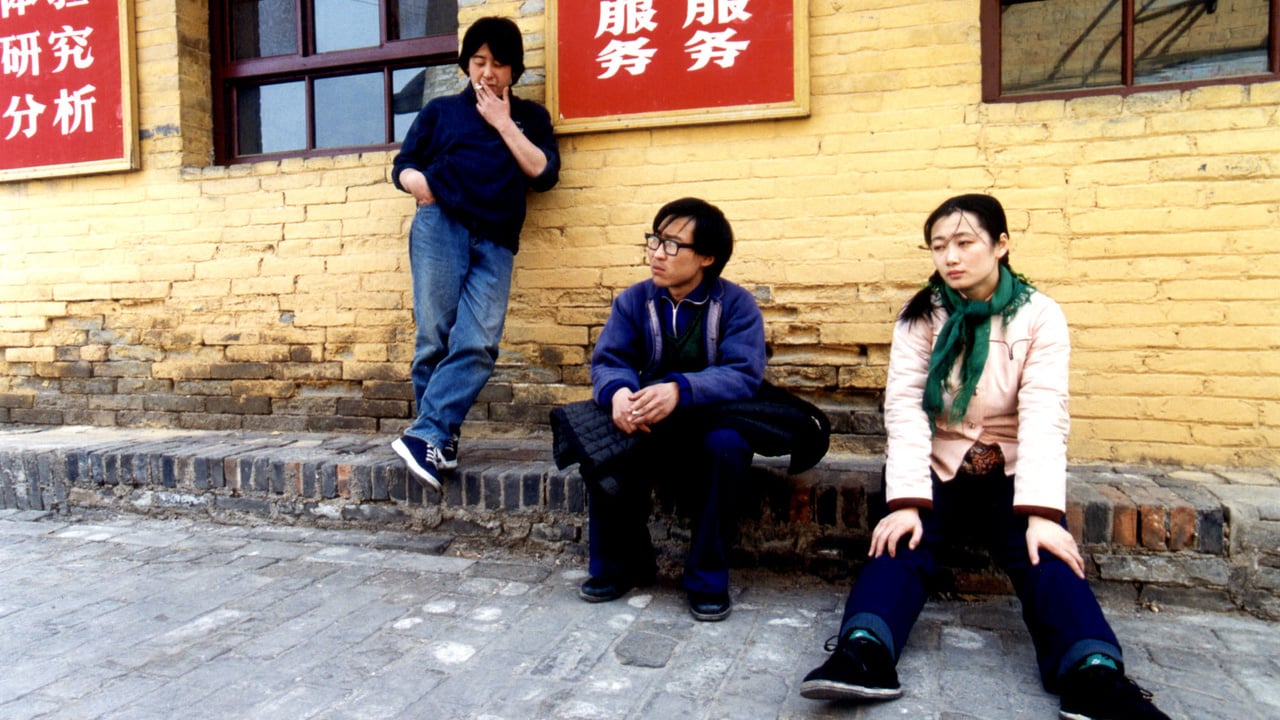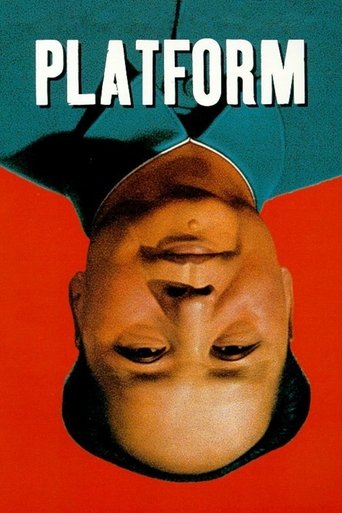

It's an epical, relaxed, meandering, beautiful, rich, etc. laconic time portrayal of China's cultural history in the 80s, based on the fate of a theatre company. The protagonists are mostly "twen slackers" who wait for the artistic breakthrough, and director Jia follows their lives in mostly aloof, breathing tableaux. What in today's cinema Hou Hsiao-hsien achieves for space and Béla Tarr for time, is combined in here, without directly referring to both of them. Here, horrible tragedies (a divorce lacking any emotions) take place as well as not less horrible comedies (the mine workers contract: "Death and accident are acts of destiny. The firm will not take any responsibility."), but everything seems to be straightly taken from real life. The title 'Platform' alone already indicates the oddly depressing tone of the film. The desperate waiting, eternally postponed by short changes of perspective as a fundamental experience of a whole era. "We're standing on the platform and we're still waiting, waiting." Although, the film is set in the 80s, 'Platform' also brilliantly and perfectly captures the mood at the end of the 20th century: a rampant epos of never realised chances and daily travail. The film of the new millennium.
... View MoreAnother master piece of Director Jia Zhang Ke, this movie takes us through the changes that impact everyone who experience the 1980s in China.If Wang Hong Wei's performance in Xiao Wu is not compelling for some people, his acting in this movie definitely solidify himself as one of the great actors in China.For many, Jia's directing style is distinctive because he tends to do low-budget movie and uses a lot of amateur actors. To me, what I appreciate most in him is that not likely other famous movie directors in China that focus more on movie's visual effect or box office, Jia's work always depicts life of ordinary Chinese people in a very (almost to the extent of extreme) realistic and candid manner.
... View More"Zhantai" has so many of the features I have admired from recent Oriental masterworks such as " A Brighter Summer Day", "Eureka" and "City of Sadness" that I will have to find some justification for considering it ultimately so much less satisfying. Like these others it succeeds in creating a complete world of its own that, because it is so remote from Western experience, exerts a fascination that is hard to forget. We are in Fenyang a small town somewhere West of Beijing, where flat plains give way to craggy, uninviting mountains. The time is the early 1980s when strict Maoist ideology was about to give way to a period of consumer liberalisation. A group of young actor-singer- dancers employed by the state to remind provincial audiences of the principles of Mao through the medium of stage entertainment are about to see their world fall victim to the progress of private enterprise, when no longer needed for government propaganda. What was once a captive audience turns fickle, often rejecting outright the new form of pop culture they are offered. The irony is that progress in this context brings disillusionment resulting in a group of friends drifting away from their close initial camaraderie. By the time the film ends their future looks far from confident. Both thematically and atmospherically "Zhantai" has the potential for great cinema. Why then after two viewings in quick succession do I find its sense of communication so elusive and uninvolving? The answer must lie in the way the director seems to distant his characters from their audience. We never get closer to them than a middle shot. In a film where the close-up is as rigorously excluded from cinematic grammar as camera movement from the later work of Ozu, the characters' everyday lives seem to be presentad as an extension of their existance on stage to the extent that we are often left to guess at their feelings and emotions. I have written before of how fascinated I am to respond to the demands of directors such as Edward Yang and Hou Xiaoxian to connect with characters and situations when given the barest information. Director Jia Zhangke is obviously aiming at their oblique narrative style but somehow gives so little that by the end I felt I knew much more about the topography of Fenyang than of the characters that live there. For a film about the effect of historical change on individuals to be completely successful it needs to be the other way round.
... View More80's is a unforgotten age of chinese,compare with "xiao wu"(director's last movie),i prefer Zhantai.It is all about 80's,its music,its live,and of courses,the people who live in that age.those 10 years,is a period of great change happened in China.With reform&open,many things changed,the life changed eventually,and something we lost also.Being a chinese,i am lucky for living through that decent.and had seen the great improvement in China,but at the same time,we lost sth.that worth to miss. And i doubt why it is a french movie,though i know it is the fund from france.but it is totally chinese,totally made by chinese,and all about our history and our individual in the age. All above,it is excellent.
... View More